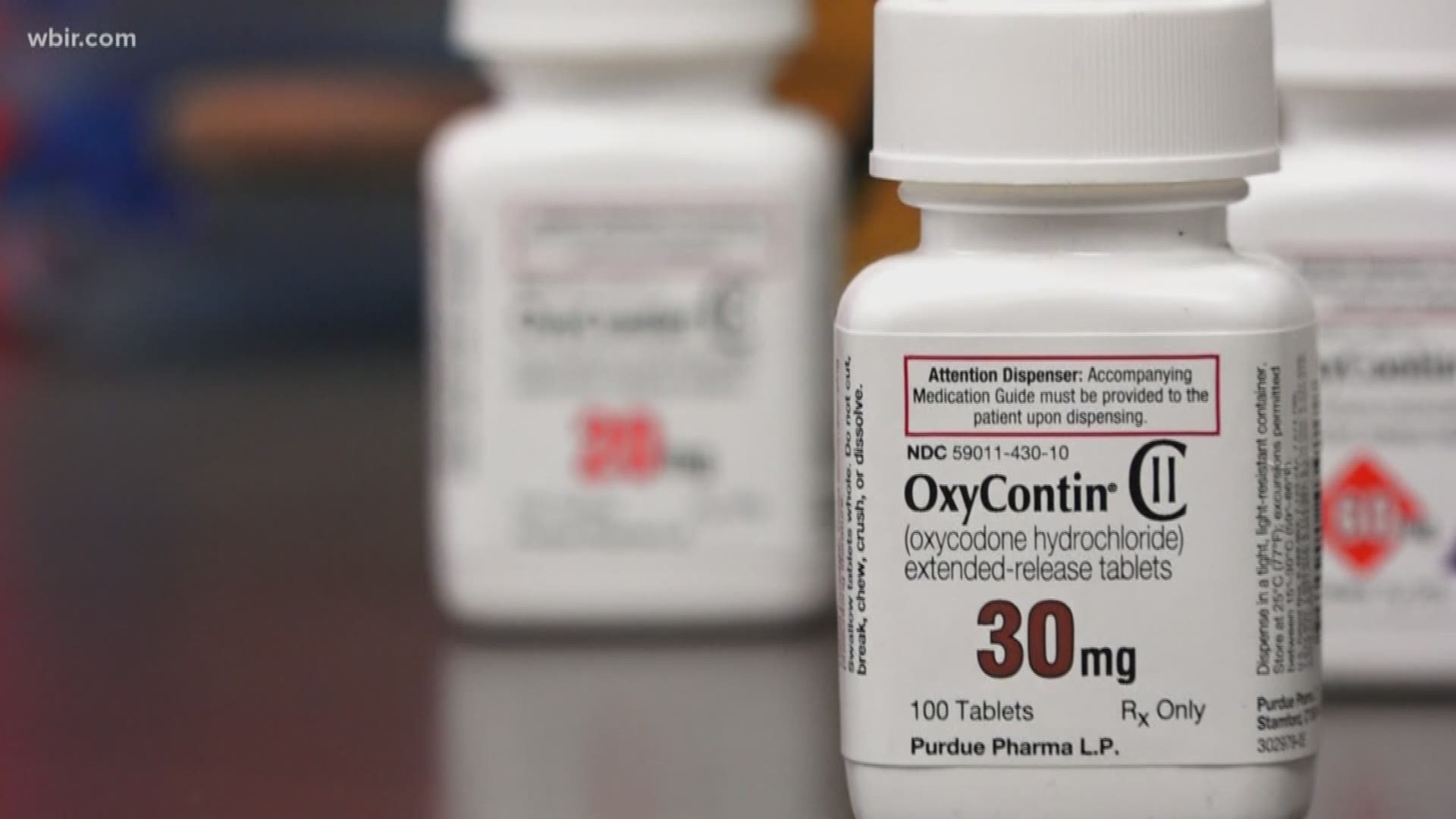President Donald Trump on Wednesday signed into law a far-reaching legislative package designed to combat the opioid crisis by hastening research into non-addictive painkillers and curbing the flow of illegal fentanyl entering the country.
The new opioid law, officially named the SUPPORT for Patients and Communities Act, should be especially impactful in Tennessee, where a hard-hitting addiction crisis has killed more than 5,000 people and fentanyl deaths are skyrocketing.
The legislation was sponsored Sen. Lamar Alexander, R-Tenn., and passed Congress with rare a level bipartisan support. As the president introduced the lawmakers behind the new law, he thanked Alexander first.
“Together, we are going to end the scourge of drug addiction in America," Trump said. "We are going to end it or, at least, make a big dent in this terrible terrible problem."
Trump spoke for about 15 minutes during the signing ceremony, wavering between prepared remarks and ad-libbing in a sometimes-freewheeling presentation during which he boasted about large drug seizures and a nationwide crackdown on the over-prescription of opioids. Trump said his administration would now build upon this progress with “the single largest bill to combat drug crisis in the history of our country.”
Knox County mayor Glenn Jacobs was a guest at the White House for the event.
The signing ceremony began with a rare introduction by first lady Melanie Trump, who spoke briefly about the dangers of drug addiction and the need for cooperation between families, medical professionals and law enforcement.
“As a nation, we must come together to fight this epidemic by providing as many resources as possible,” Melania Trump said. “I know that as long as my husband is in office, this will remain a priority. Fighting opioids abuse goes across all party lines.”
This message of togetherness, which was repeatedly echoed by the president and his first lady, appeared to back off prior statements by Trump in which he claimed Democrats showed very little support for the bill. In reality, the act received overwhelming bipartisan support, passing the House 393 to 8 and the Senate at 99 to 1.
Trump did not take questions during the event.
The legislation signed Wednesday includes more than 70 law changes tackling a wide range of opioid-related issues, including closing some legal loopholes that have allowed the drugs to proliferate and made it harder for those who are addicted to get treatment.
Despite the wide-reaching changes in the new law, some medical advocates have criticized the legislation for not going far enough. The law does not, for example, appropriate funding to dramatically expand the availability of addiction treatment, which experts often say is necessary to curb the opioid epidemic.
When asked about this criticism last month, Alexander stressed all that the legislation accomplishes; not what it doesn’t. Alexander also said that Congress had appropriated $8.5 billion to fight the crisis since March.
“I think the critics are imagining that somehow there is an agency in Washington that can solve this problem with a magic wand — that won’t work,” Alexander told the Tennessean. “But what we can do is dozens of steps and billions of dollars that will equip doctors, medical schools, border guards and others to fight the opioid fight at home.”
One of the most meaningful changes is expected to come from the Synthetics Trafficking and Overdose Prevention Act, or STOP Act, which should make it harder to import narcotics through the mail by requiring the Postal Service to collect electronic data — including sender information, destination and contents — on merchandise entering the country. The law is designed specifically to stop shipments of fentanyl, a cheap-to-produce synthetic opioid painkiller that is 50 times more potent then heroin.
Fentanyl was once barely known outside of hospitals, but it has become the deadliest threat in the opioid crisis. Fentanyl is often imported through the mail from Mexico and China, then mixed into heroin or counterfeit pills to pad the profits of drug traffickers.
Other provisions in the Senate package expand access to programs for the prevention and treatment of opioid addiction, provide grants to states to buy back unused prescription drugs and offer recovery care at hospitals or pediatric centers for babies born suffering from opioid withdrawal.
Another provision would speed up the research and development of nonaddictive painkillers, which Alexander has called the “holy grail” of the fight against the opioid epidemic.
“We sometimes forget there are 100 million Americans living with some pain, and there are 25 million who really hurt because they have chronic pain,” Alexander has said previously. “They need help, and we need more effective medicines and treatments for pain.”
Brett Kelman is the health care reporter for The Tennessean. He can be reached at 615-259-8287 or at brett.kelman@tennessean.com.

